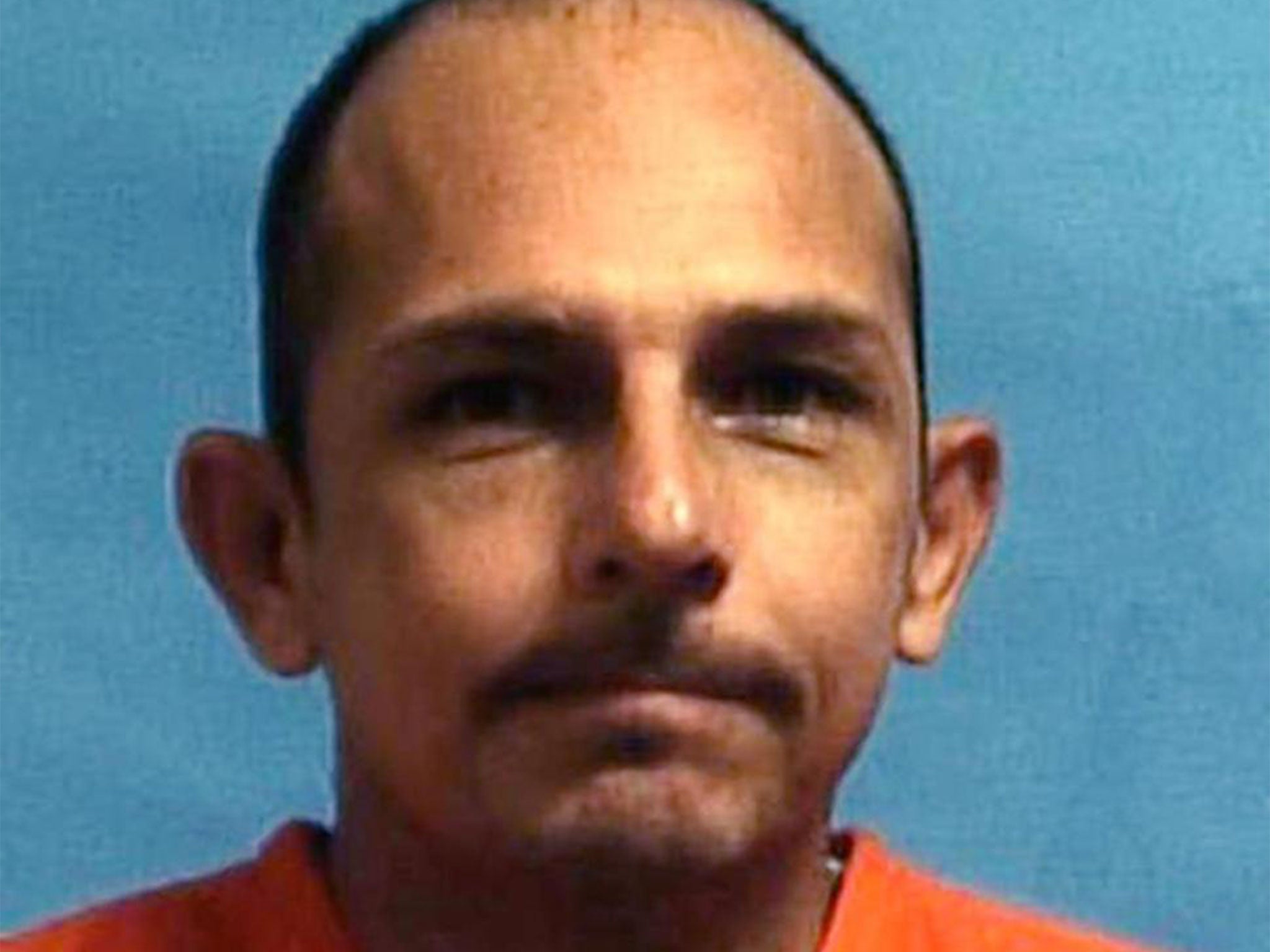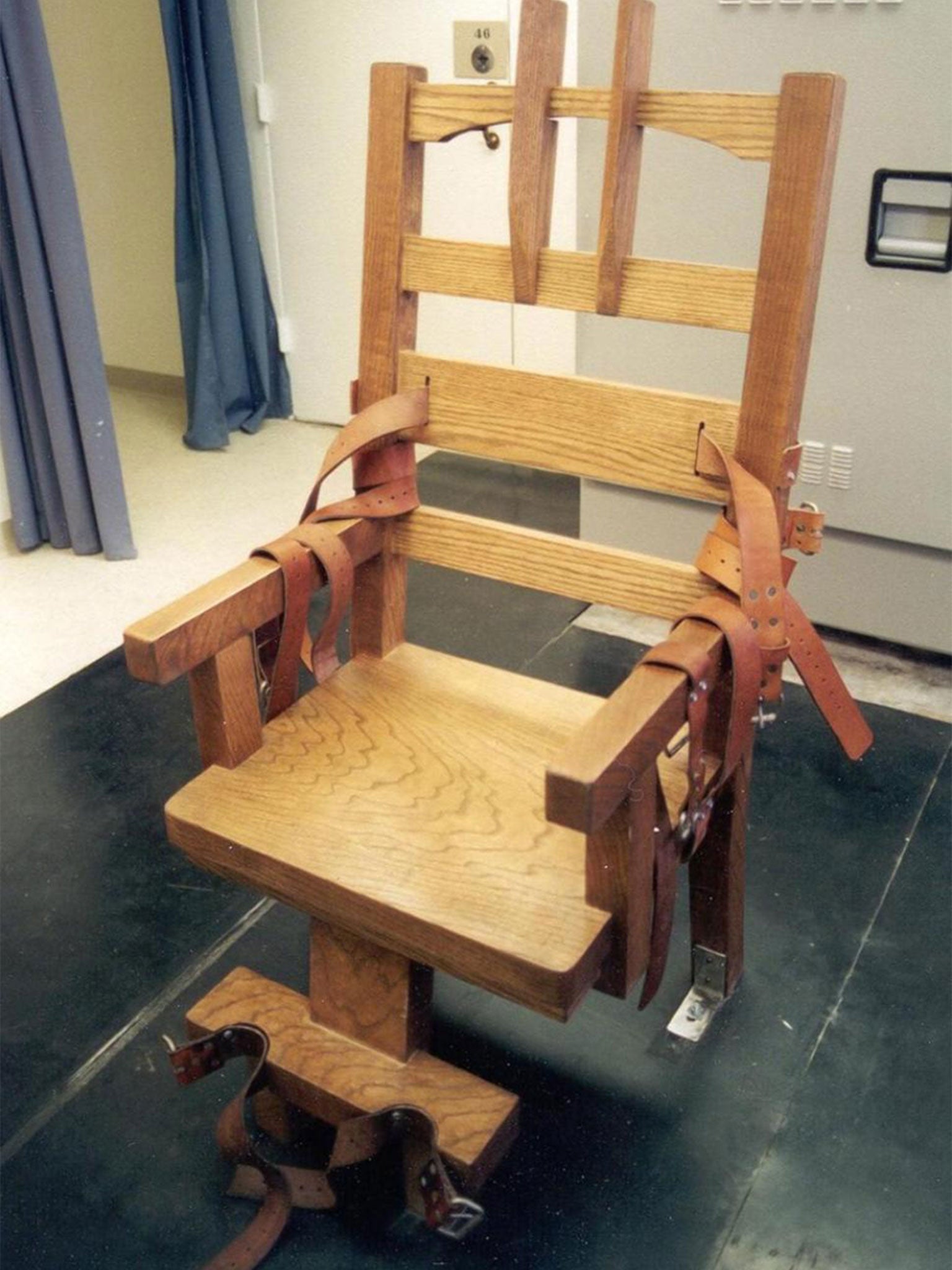Death row inmate in Florida asks to be executed by electric chair rather than lethal injection in state first
Wayne Doty says he is driven by a desire to speed up the process and bring peace to himself and the family of his victim

Your support helps us to tell the story
From reproductive rights to climate change to Big Tech, The Independent is on the ground when the story is developing. Whether it's investigating the financials of Elon Musk's pro-Trump PAC or producing our latest documentary, 'The A Word', which shines a light on the American women fighting for reproductive rights, we know how important it is to parse out the facts from the messaging.
At such a critical moment in US history, we need reporters on the ground. Your donation allows us to keep sending journalists to speak to both sides of the story.
The Independent is trusted by Americans across the entire political spectrum. And unlike many other quality news outlets, we choose not to lock Americans out of our reporting and analysis with paywalls. We believe quality journalism should be available to everyone, paid for by those who can afford it.
Your support makes all the difference.A death-row inmate in Florida has asked the state to execute him by electrocution rather than lethal injection, the state’s default way to carry out executions, in what is believed to be the first such request under a state law allowing inmates to pick the electric chair over a fatal dose of drugs.
If his request is granted and his execution carried out, Wayne Doty, who was sentenced to death for killing another inmate, would become the first Florida inmate executed by electrocution since the 2000 law letting inmates to choose between two methods was signed by former governor Jeb Bush.
Doty said in a handwritten affidavit that his decision was motivated in part by a desire to speed up the process and bring peace to himself and the family of his victim.
He also pointed to what he called issues “surrounding executions through lethal injection.” In recent years, a shortage of lethal injection drugs has prompted harried scrambles in states trying to carry out executions and repeated legal challenges from death-row inmates.
Florida, one of the country’s most active death-penalty states, has not been immune to the situation. Earlier this year, the Florida Supreme Court halted executions in the state while the US Supreme Court considered a challenge to Oklahoma’s lethal-injection protocol (which is essentially identical to Florida’s drug combination).
The US Supreme Court ultimately upheld Oklahoma’s protocol in a case that centered on the drug midazolam, a sedative used in three bungled executions last year. The first execution in Florida since January is scheduled to take place next week.

Doty was sentenced to life in prison in 1997 for shooting his former employer in the face during a robbery. While he was serving this sentence, Doty strangled and stabbed an inmate named Xavier Rodriguez, according to a Florida Supreme Court summary of the case.
In May 2011, Doty, along with William Wells, another inmate, tied up Rodriguez’s hands before Doty choked and stabbed Rodriguez, court records said. After taking a shower, smoking a cigarette and making sure Rodriguez was dead, Doty and Wells alerted prison officials about what had happened.
Doty pleaded guilty to murder and represented himself during the trial’s penalty phase, the period when jurors decide how to sentence someone who has been convicted of a crime. He called up family members to testify about the emotional abuse he faced as a child and prison officials to testify about his time behind bars.
Ultimately, Doty said during his testimony that he had planned to kill Rodriguez for some time.
“I don’t want to be put in a position where somebody might not make it home to their family…I’m not gonna stop. I’ll do it again if I’ve got to,” Doty testified during his trial, according to the Florida Supreme Court summary. The jurors sentenced him to death.
Florida is one of eight states that still have the electric chair on the books and one of a handful of states that allow inmates to select how they will be executed, according to the Death Penalty Information Center.
Some states have other methods available in case lethal injection is unavailable or deemed unconstitutional. A handful of states have contemplated adopting other methods due to the drug shortage, and three states have actually made such changes since last year: Tennessee (electric chair), Utah (firing squad) and Oklahoma (nitrogen gas) all formally adopted new backup methods amid the ongoing issues with lethal injection.
Florida began allowing inmates to select how they will be executed in 2000 following growing controversy over the electric chair. The last inmate Florida executed by electrocution was Allen Davis, who was put to death in July 1999. Witnesses described blood streaming from Davis’s nose and onto his shirt, which drew widespread attention two years after an inmate’s mask burst into flames during a different electrocution in Florida.
The Florida Supreme Court later said that Davis “did not suffer any conscious pain” and said it determined that the state’s electric chair did not create cruel or unusual punishment.
In January 2000, Jeb Bush, the state’s Republican governor, signed a law allowing inmates to choose between electrocution or lethal injection.
“This would be the first use of the electric chair after lethal injection was implemented in Florida,” McKinley Lewis, spokesman for the Florida Department of Corrections, said Friday. He said he was not aware of any other requests for the electric chair.
Lewis said the request is being reviewed by the corrections department.
The three-legged oak electric chair at the Florida State Prison, dormant since the turn of the century, remains available for executions.
“All of the components that go along with electrocutions are still in place,” Lewis said.
Under Florida law, inmates have 30 days after the state Supreme Court affirms their death sentence to request electrocution, otherwise the state defaults to lethal injection.
The Florida Supreme Court affirmed Doty’s death sentence on July 9 in an opinion that noted his “stated desire to be executed.” Doty’s affidavit requesting death by electrocution was signed on Aug. 12 and filed in the Eighth Judicial Circuit Court of Florida, which covers six counties in the northern part of the state.
“My decision on method of execution is a self driven motive allowing the state of Florida to exercise their duly sworn duties to deliver my sentence of death in an expeditious manner not forestalling justice from being prosecuted…bringing peace to the victims family, as well as my spiritual freedom,” Doty, 42, wrote in the affidavit formally requesting electrocution.
The last time an inmate picked a method of execution other than lethal injection was when Robert Gleason Jr., a convicted murderer, was executed by Virginia in 2013. He selected the electric chair.
Since the U.S. Supreme Court reinstated the death penalty in 1976, Florida has executed 90 inmates, trailing only Texas, Oklahoma and Virginia during that time. Since 2011, when Gov. Rick Scott (R) took office, only Texas has executed more inmates than Florida.
Copyright: Washington Post
Join our commenting forum
Join thought-provoking conversations, follow other Independent readers and see their replies
Comments